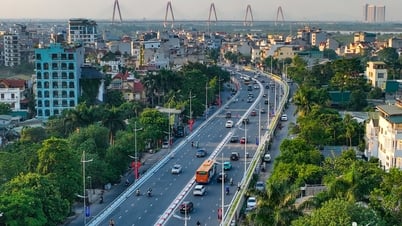Is 6-7% feasible?
Speaking with VietNamNet reporter, Mr. Pham Minh Huan, former Deputy Minister of Labor - Invalids and Social Affairs (formerly), who held the role of Chairman of the National Wage Council, assessed: The proposal to increase the regional minimum wage by 9.2% of the Vietnam General Confederation of Labor (VGCL) is necessary to improve the income of workers.
However, according to Mr. Huan, the increase must still be based on the actual resilience of businesses, especially in the context that many industries are still struggling to recover from the pandemic and broken orders.
In reality, many domestic enterprises, especially export enterprises in labor-intensive industries such as textiles, footwear, and electronics, are facing great pressure on labor costs in total product costs. Meanwhile, orders from major markets such as the US and EU continue to decline, and reciprocal tax policies remain "hanging", making it difficult for enterprises to forecast and plan financial strategies.
The current regional minimum wage does not guarantee a minimum standard of living. Illustration photo: Nam Khanh
"Increasing wages is necessary, but if the increase is too high, beyond the ability to pay, businesses will be forced to cut labor or reduce production. This goes against the goal of protecting jobs," Mr. Huan warned.
Regarding the specific increase, Mr. Huan said that 9.2% is only the initial proposal from the General Confederation of Labor in the first meeting of the National Wage Council. The Council will still have to negotiate and discuss among three parties: workers, employers and state representatives to reach a final agreement.
“Normally, both sides have a ‘buffer zone’, so the final increase could be around 6-7%, which is a reasonable and feasible number under current conditions,” said Mr. Pham Minh Huan.
Should be adjusted on a regular basis
Sharing with workers, Mr. Huan said that in the current context, it is impossible to delay adjusting the minimum wage. While the cost of living such as electricity, water, gasoline, accommodation, tuition fees, etc. have all increased, not adjusting in time will cause the actual income of workers to increasingly "shrink".
According to Mr. Huan, the highest regional minimum wage is currently only around 5 million VND, while the cost of living in large cities has far exceeded this figure. If the gap between the minimum wage and the minimum living standard continues to exist, workers will not be able to stay in the city and will be forced to withdraw from the labor market. This will cause great losses for businesses, especially when they lose trained and experienced workers.
From a policy perspective, Mr. Huan believes that the minimum wage needs to be adjusted on a regular schedule, avoiding the situation of "freezing for a few years and then suddenly increasing", causing psychological disturbance for both employers and employees.
According to Mr. Pham Minh Huan, the ideal adjustment is annual, if not, the frequency should be maintained every 18 months. Only when the minimum wage increases steadily and predictably, can businesses feel secure in planning production, and workers also have a basis for stabilizing their lives.
Source vietnamnet
Source: https://baotayninh.vn/de-xuat-tang-luong-toi-thieu-9-2-co-qua-cao-a192141.html






































































































Comment (0)